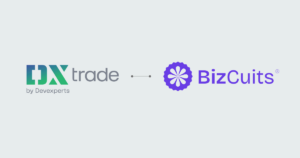CySec has no teeth: Warehouse brokerages still offering bonuses one month after bonus ban
Despite CySec instructing all brokers in Cyprus to desist from offering deposit bonuses and ensuring that they stick to a leverage limit of 1:50, some firms at the lower end of the market are not doing so – here is why, and here is how it can be stopped in order to preserve the reputation of the regulatory jurisdiction

The end of the year is nigh, and as the sun prepares to set on 2016, a new year of new dynamics within the FX industry awaits commencement, and the entire industry can look back on a year of development, evolution and in some cases significant change – largely centered around the execution model used by retail brokerages.
2016 can definitely be regarded as the year of the prime brokerage, with boardroom discussions, interbank direction and conference panels featuring the leaders of the FX world having centered on methods of executing retail trades in a live market whilst ensuring access to the most accurate execution and best live market liquidity from the Tier 1 banks and electronic communication networks in order to provide customers with the finest pricing and market access despite the continual curtailment of credit from the large FX dealers.
A far cry from the poignant matters within many retail FX firms during the previous decade, which would have been peppered with references to bonuses, methods of retaining client funds by delaying withdrawals, and of course the absolute sign that a firm is not sending trades to market – the deposit bonus.
During 2016, during the entirety of FinanceFeeds’ research and interaction globally with the leaders of this industry which range from senior regulatory officials to prime of prime brokerage executives, to integration and platform technology specialists and top level retail brokerages, not one word about bonuses and profit-and-loss was ever mentioned. That is because those days are thankfully long gone.
…or are they?
Yes, those days are long gone in the vast majority of cases and retail FX firms in top quality regions with high quality infrastructure now completely emulate the institutional world, giving the retail customer, whether via proprietary platform or MetaTrader, absolutely accurate market execution thanks to the dedication and understanding of the company executives within the retail firms, the integration technology providers which allow the MetaTrader platform to connect to a live market, the continual study of how to provide retail firms with top quality liquidity by prime of prime brokerages and the sophistication of today’s retail trader – not to mention the modernization which many regulators have undergone.
There is still one major issue however.
FinanceFeeds has spoken this week with many senior executives in the institutional sector, many of whom have expressed a sincere and most certainly valid concern that the deposit bonus model is continuing to exist to some extent, largely among retail brokers in Cyprus.
CySec has made tremendous steps recently to not only maintain the retail FX industry to which it plays host, but to ensure its longevity.
It is absolutely fair to say that Cyprus has a very established retail FX industry, and is the number one hub for the entire global retail business, with platform development firms, liquidity providers, prime brokerages, integration specialists, professional services consultancies and ancillary service providers all based in Cyprus, whose extremely knowledgeable staff make for a long term retail center that dominates globally.
This is a massive achievement, however there is one flaw.
In November this year, CySec took the step – quite rightly – to instruct all CySec regulated firms to desist from providing bonuses on deposits to retail clients.
CySec stated “Cyprus Investment Firms must avoid the practice of offering bonuses that are designed to incentivise retail clients to trade in complex speculative products such as CFDs, binary options and rolling spot forex as it is unlikely that a firm offering such bonuses could demonstrate that it is acting honestly, fairly and professionally and in the best interests of its retail clients.”
CySec considers bonus promotions that encourage or incentivize trades in leveraged FX products to be instrumental to the exposure of clients to unde risk. Demetra Kalogerou, Chairman of CySec, considers bonus promotions to be “completely unacceptable.”
She is indeed correct.
At the same time, CySec introduced a limit on leverage to 1:50, for similar reasons, those being to eliminate the “you against the house” mentality of some smaller retail firms, and to stop any exposure to negative balances should firms be processing highly leveraged trades to market.
The difficulty is that despite CySec quite commendably making these rulings, it has been brought to our attention that there are still many firms operating with high leverage and which are offering deposit bonuses, demonstrating one of two possibilities – either CySec is ‘showboating’ by issuing circulars and statements asking firms to desist from this practice, or brokers wishing to continue on that model do not respect the regulations enough.
Firms in jurisdictions such as America, Australia or the United Kingdom, if instructed to desist from certain practices, would do so immediately, even if it created a very significant conundrum for their business, because the law is the law and the consequences for flouting the rules would be grave indeed.
In the US or Australia, it would mean a wind-up of the company by the regulator as the NFA and ASIC have litigation powers, meaning that they can obtain a court order very quickly to close companies down that do not abide by the rules, not just cancel or suspend their license. In Britain, the financial ombudsman or Office of Fair Trading would put sanctions on those who do not abide by the law and potentially hold FCA registered compliance officers personally responsible for allowing the company for which they are a responsible officer continue down a path that is outside of the regulatory parameters.
In the US, customers would be restituted and the firm’s assets seized, even if no complaints were made.
One of the problems CySec faces is that in some cases, brokerages with genuine regulatory licenses and substantial low-deposit business in non-regulated regions are using genuine regulate entities to promote their status, yet are onboarding most of their business via unregulated offshore divisions, and operating on a warehouse basis often with no liquidity feed.
Put simply, such firms have a CySec registered entity, and an offshore entity, and only onboard one or two clients via the CySec entity, and the rest offshore where there are no rules, and then when CySec does an audit, the brokerage in question can show them the handful of clients that they have onboarded via Cyprus, which all check out correctly. The other several hundred are onboarded offshore are outside the jurisdiction of any regulator, and not subject to any audit requirements.
The first example that we investiagated was HotForex, which has a relatively large presence in the Asia Pacific region, as well as other jurisdictions outside Europe such as Russia and the Commonwealth of Independent States, yet it also has its main entity in Cyprus, with CySec licensing yet only a small percentage of its business is channeled through Cyprus, most being offshore, thus gaining the kudos of being CySec regulated, yet conducting the lion’s share of business offshore with no regulation.
The company is registered in St Vincent and the Grenadines, a region in which FX is NOT a regulated financial instrument, and has not been since the St Vincent and the Grenadines financial regulator stated clearly in an announcement in 2014 that
The Financial Services Authority wishes to advise that it does not ‘Regulate, Monitor or Supervise” International Business Companies (IBCs) which engage in FOREX Trading or Brokerage. Statements of this nature are a misrepresentation of the Authority’s supervisory powers with respect to IBCs.
“The Authority does not approve or sanction the business activities of IBCs upon their incorporation. The extent of supervision of IBCs goes no further than to ensure that IBCs comply with their obligations under the International Business Companies Act. The Authority also does not license the activity of FOREX Trading or Brokerage and any IBC purporting to be licensed by the Authority to conduct this business activity is making a false statement” said the statement from the regulator.
An investigation into the structure of HotForex and its CySec regulated sister company HF Markets uncovered an interesting dynamic that is not exclusive to this particular company, but was brought to light by an internal source following our research.
A call to HotForex support today confirmed that the company operates separate business models in different regions, the support representative having said
“Our CySec division is only for European clients. Non european clients are catered for by our St Vincent and the Grenadines entity. Many non European clients do not fall under the European regulation, such as Russia and Israel. Many other brokers just accept any client from anywhere under their CySec license but this is wrong. All the clients come to HotForex, we have them under different entities but are all serviced by us”
The representative insisted that the company was regulated in St Vincent and the Grenadines, however this cannot be the case as there is no such regulation in that jurisdiction for FX firms. The telephone number from which the call was received during which the HotForex representative explained this was from the company’s Cyprus head office.
A source close to the matter further explained “Many companies, including HotForex, although they will say they are CySec regulated, 95% of their clients come under the offshore license. Why is this? It is because this is where b book clients go, and when audited by the regulator, this does not show up therefore it looks like there is no risk of breaking the regulator’s rules.”
Russia-focused, Cyprus based brokerage EXNESS is another case in point. The company enjoys significant presence on Limassol’s exquisite new marina complex, in a very prominent building within which the abundance of staff is notable by its absence.
The company has a CySec license, however is also registered in St Vincent and the Grenadines, and according to research by FinanceFeeds, the vast majority of its business is from Asia (mostly mainland China), Russia and the Commonwealth of Independent States.
A discussion with EXNESS customer support revealed that EXNESS will allow clients to register for accounts with the CySec entity in Cyprus, or with the unregulated St Vincent & The Grenadines entity.
When asked whether the company is regulated in St Vincent and the Grenadines, we were asked to wait for a while whilst the representative checked. After a few minutes, the representative confirmed “EXNESS is a Cyprus regulated company, regulated by CySec, whereas EXNESS VC (St Vincent and the Grenadines) is an international business company.”
This representative is indeed absolutely correct, however clearly states that one entity of the firm is regulated by CySec, and the other is not regulated by anyone at all.
EXNESS channels the vast majority of its business through the division of the firm in St Vincent and the Grenadines, offering massive leverage of up to 1:2000, the company having intentionally moved away from New Zealand when the Financial Markets Authority was formed, clamping down on bucketeering and highly leveraged margin FX that had been prevalent in the pre-regulation era.
The firm canceled its New Zealand registration and opted for St Vincent and the Grenadines as a region to continue its business, which was largely from China – as it still is today. Whilst volume figures in general must not be considered accurate, EXNESS notes that its revenues from China form a substantial proportion of the company’s business.
Whilst the firm was honest in explaining that it does not have regulation in St Vincent and the Grenadines, yet does in Cyprus, the majority of its clients are being serviced by the unregulated entity. We asked EXNESS for a division of how many clients are serviced by each entity, the company declining to provide such information.
We certainly applaud the progress made by CySec, however due to the nature of Cyprus being a hub for the entire world – that being that there are no clients in the domestic market, yet Cyprus serves the entire world in terms of retail FX brokerages, thus a cross-border methodology may be the answer.
In the United States, it is illegal for domestic clients to work with overseas firms that are not NFA members, therefore the NFA can be absolutely sure that any service being provided to anyone in America is in accordance with the requirements, and no NFA member can onboard clients via an offshore entity to circumvent rules or place overly attractive bonus offers on websites.
In Australia, things are also actionable on a cross-border basis.
Two years ago, ASIC contacted the Japanese regulatory authorities and was able to close down Australian retail FX firm Pepperstone’s Japanese office. At the time, Pepperstone stated “Pepperstone does not currently hold a license issued by the JFSA and we have therefore decided that we can no longer service Japanese residents until such time as we hold the appropriate license issued by the JFSA.”
Currently, CySec does not have the powers to take firms to court, or to restitute clients, nor does it have cross-border jurisdiction outside of the European Union (CySec is under MiFID regulations) thus this practice can prevail via the back door.
The only action CySec can take against this is to cancel the CySec license of firms which promote bonuses and high leverage – even if they are onboarding clients through offshore entities – and listing CySec licenses on their websites in order to gain credibility.
A simple solution to a loophole, and likely an effective one.









